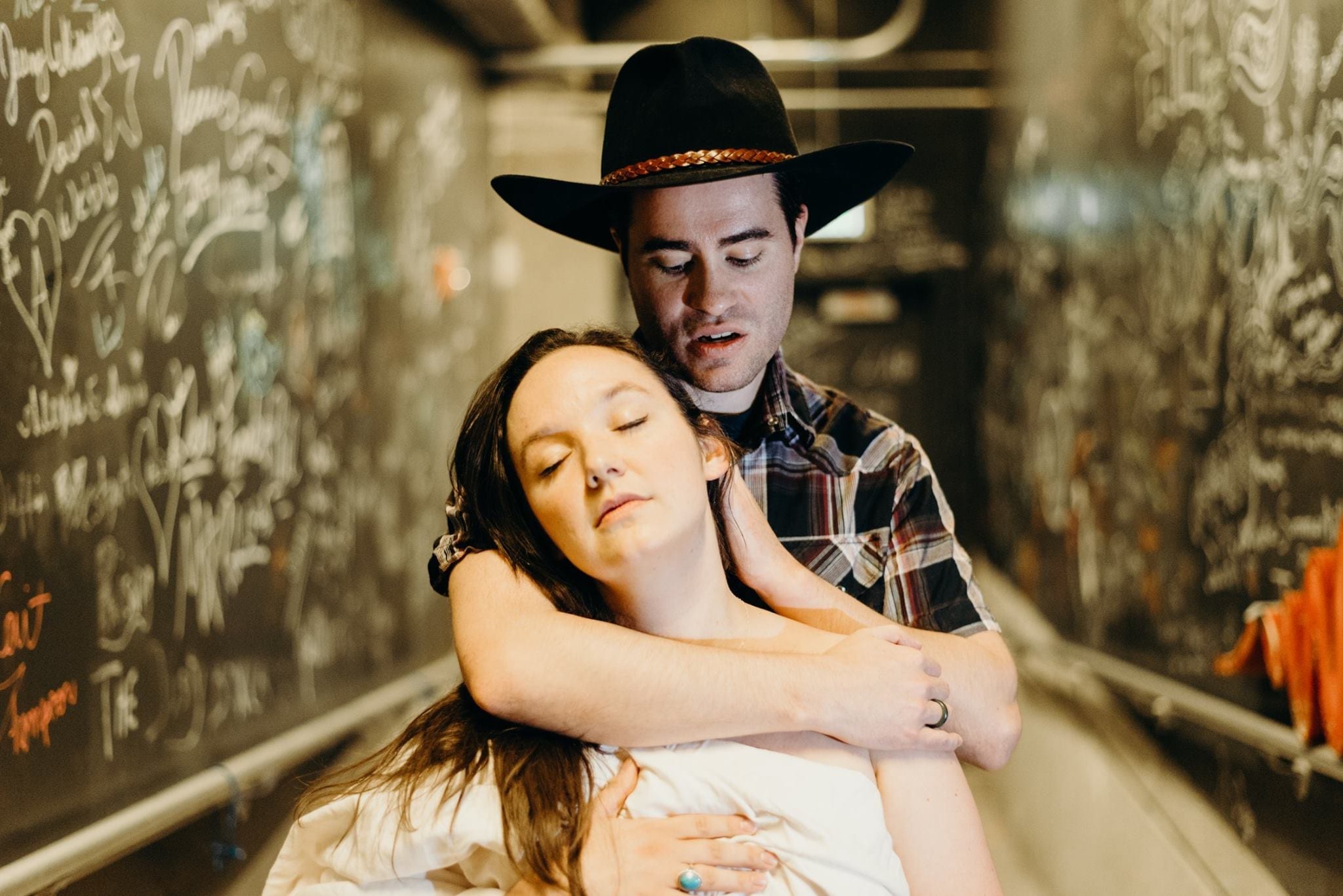SALT LAKE CITY — In You Got Older, Clare Barron has written a deeply intimate play about the anxieties, awkwardness, and unexpected joys of the initial stages of middle adulthood. Like life, the script is a collection of simple, profound, and silly moments that crash against one another. In their new storefront Gateway location, Wasatch Theatre Company has staged an equally intimate—and for better and worse—equally awkward production that captures compelling moments of joy and pain but fails to land a solid emotional connection.

The story of You Got Older centers on Mae Hardy, who has moved back to her childhood home after a failed romance leads to a career implosion. Her personal crash has coincided with a serious cancer diagnosis for her father. While she has arrived to ostensibly take care of him during his treatments, their shifting roles and the proximity of bedrooms leads to some teenage-level toe-stepping. Mae navigates this unexpected return to high school-ish living while parent-caretaking with the help of her sexual fantasy cowboy Luke, tipsy chats with a local barfly, and loving squabbles with her loyal siblings.
Haley McCormick gives off a vibrant energy in the role of the emotionally and sexually frustrated Mae. Her dialogue flows naturally, and she keeps a strong emotional pace to the rapid shifts in action. In an unexpected moment, when she speaks directly to the audience, McCormick connected with clarity and precision, and more than once I found myself moved by her emotionally-grounded performance. It was, however, difficult to watch her giving so much as her primary acting partner, John Hinckley, in the role of her father, struggled with memorization, eye contact, and vocal variety. In all but perhaps the emotional climax of the show, he seemed distant and unconnected to the script.
 The supporting cast was somewhat uneven, but generally enjoyable. Daniel McLeod delivers some laugh-out-loud moments as the hapless Mac, Mae’s doubtful love (or at least sexual) interest. A stand out for his over-the-top zeal and focus was Jesse Nepivoda in the role of the sexy imaginary cowboy, Luke. This imagined character appears, ever ready to rescue and take control of Mae’s frustrations and anxieties. But however much she might wish otherwise, Mae’s reality and her father, are continually bursting in, preventing her from true escape. Amanda Caraway and Ali Lente were sweet and relateable as the well-drawn characters of Mae’s sisters Hannah and Jenny. Finally, Carlos Nobleza Posas, as Mae’s younger brother Matthew, brings an energized charm and warmth to his role. The script shines in the moments where the siblings carry on dueling conversations and arguments that overlap and blend into one another. Anyone with siblings will appreciate the complex dynamics that govern their relationships with one another and their father.
The supporting cast was somewhat uneven, but generally enjoyable. Daniel McLeod delivers some laugh-out-loud moments as the hapless Mac, Mae’s doubtful love (or at least sexual) interest. A stand out for his over-the-top zeal and focus was Jesse Nepivoda in the role of the sexy imaginary cowboy, Luke. This imagined character appears, ever ready to rescue and take control of Mae’s frustrations and anxieties. But however much she might wish otherwise, Mae’s reality and her father, are continually bursting in, preventing her from true escape. Amanda Caraway and Ali Lente were sweet and relateable as the well-drawn characters of Mae’s sisters Hannah and Jenny. Finally, Carlos Nobleza Posas, as Mae’s younger brother Matthew, brings an energized charm and warmth to his role. The script shines in the moments where the siblings carry on dueling conversations and arguments that overlap and blend into one another. Anyone with siblings will appreciate the complex dynamics that govern their relationships with one another and their father.
Wasatch’s new space holds some unexpected charm, as there are no bad seats in the small house and hearing the actors was never a problem. The lighting and costume designs were adequate for the cinematic story telling style. Indeed, the structure and plot would lend themselves well to a television movie. This realistic story telling style comes up against production limitations in the unfinished look of the set. The small stage space lends itself to theatrical, non-realistic staging, but in this production, instead of leaning into those limitations, designer Kit Anderton’s partial box set landed in the uncanny valley of neither realistic nor stylized enough to be satisfying. The play, particularly its fantastical elements, might have been more compelling had it been placed against a background that invited more imagination and less speculation about budget limitations. The moments where the design works best are when the audience is drawn into the script through director Brian Pilling‘s simple staging choices, like the actors standing behind a window frame, or gazing at an empty fire pit.
Ultimately, the play ends with a poignant moment that highlights its interplay of the emotional contrasts that follow us in every moment of our lives. Writers like Shakespeare and Dickens understood that it is through laying bare emotions plainly next to each other—and occasionally interlacing them with the fantastic or mystical—that audience members can best recognize themselves in the characters. Barron’s script follows this same pattern. Perhaps as the Wasatch cast continues its run of You Got Older, they too will overcome their growing pains and blossom.
[box]You Got Older plays Thursdays through Sundays at 8 PM and Sundays at 2PM through September 14 at Wasatch Theatre Company in the Gateway Mall (124 South 400 West, Salt Lake City). Tickets are $20. For more information, visit www.wasatchtheatre.org.[/box]
